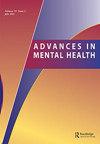What we can learn from families experiences of family therapy in an adolescent mental health day program setting?
IF 1.4
Q3 PSYCHIATRY
引用次数: 1
Abstract
ABSTRACT Objective: Over the past 50 years Family Therapy has become a widely used treatment approach for emotional and behavioural problems in children and within families [Sargent, 1997. Family therapy in child and adolescent psychiatry. Child and Adolescent Psychiatric Clinics of North America, 152–171]. Within Child and Adolescent Psychiatry, Family Therapy is recognised as a cornerstone of holistic treatment with meta-analysis showing the general effectiveness of such treatments [Hoagwood, Burns, Kiser, Ringeisen, & Schoenwald, 2001. Evidence-based practice in child and adolescent mental health services. Psychiatric Services, 52, 1179–1189]. However, there is a general paucity of literature about Adolescent Mental Health Day Programs and no recorded evidence of the use of Family Therapy within these settings in child and adolescent psychiatry. This study draws upon the experience of two families to explore the use of Family Therapy within Adolescent Mental Health Day Programs. Method: A mixed methodology was employed using the SCORE-15 and semi-structured interviews. Results: The families considered that participating in Family Therapy contributed positively to individual and family outcomes. The case studies highlight the needs and issues in engaging other family members, the importance of both the Family Therapist and mental health clinicians being involved, and that the family approach was seen overall as a positive satisfying experience for families. Discussion: This study provides limited but valuable support for the application of Family Therapy within an Adolescent Mental Health Day Program setting. The study highlights the value of documenting lived experience, as well as indicating further areas for research, including the clinicians experience of this approach.在青少年心理健康日项目中,我们可以从家庭治疗的家庭经验中学到什么?
摘要目的:在过去的50年里,家庭治疗已经成为一种广泛应用于儿童和家庭内部情绪和行为问题的治疗方法[Sargent, 1997]。儿童和青少年精神病学中的家庭治疗。儿童与青少年精神病学研究[j]。在儿童和青少年精神病学中,家庭治疗被认为是整体治疗的基石,荟元分析显示了这种治疗的总体有效性[Hoagwood, Burns, Kiser, Ringeisen, & Schoenwald, 2001]。儿童和青少年心理健康服务的循证实践。精神病学杂志,52(2):1179-1189。然而,关于青少年心理健康日项目的文献普遍缺乏,也没有记录证据表明在儿童和青少年精神病学的这些设置中使用家庭治疗。本研究利用两个家庭的经验,探讨在青少年心理健康日计划中使用家庭治疗。方法:采用SCORE-15和半结构化访谈的混合方法。结果:家庭认为参加家庭治疗对个人和家庭的结果有积极的影响。案例研究强调了其他家庭成员参与的需求和问题,家庭治疗师和心理健康临床医生参与的重要性,以及家庭方法总体上被视为家庭积极满意的体验。讨论:本研究为家庭治疗在青少年心理健康日项目中的应用提供了有限但有价值的支持。该研究强调了记录生活经验的价值,并指出了进一步的研究领域,包括临床医生对这种方法的经验。
本文章由计算机程序翻译,如有差异,请以英文原文为准。
求助全文
约1分钟内获得全文
求助全文

 求助内容:
求助内容: 应助结果提醒方式:
应助结果提醒方式:


